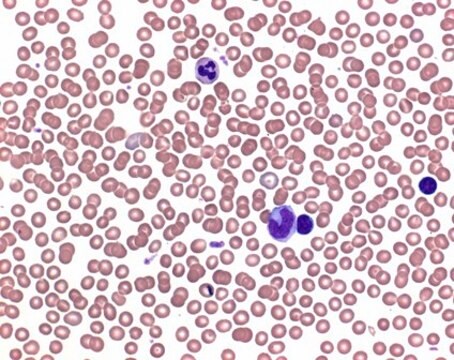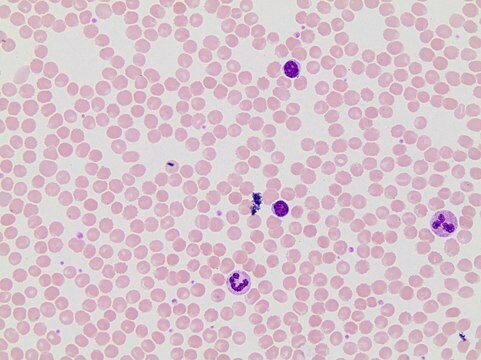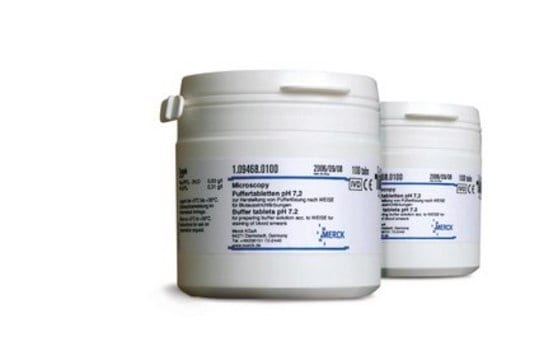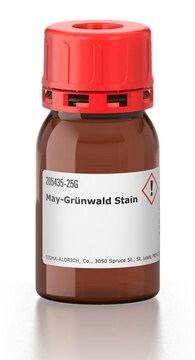1.01424
May-Grünwald′s eosine-methylene blue solution modified
for microscopy
About This Item
Recommended Products
grade
for microscopy
Quality Level
vapor pressure
128 hPa ( 20 °C)
form
liquid
autoignition temp.
420 °C
composition
C.I. 45380, 0.5 g/L
C.I. 52015, 0.7 g/L
contains CH3OH
expl. lim.
5.5-44 % (v/v) Methanol()
IVD
for in vitro diagnostic use
technique(s)
microbe id | staining: suitable
bp
65 °C/1013 hPa
transition temp
flash point 12 °C
density
0.79 g/cm3 at 20 °C
application(s)
clinical testing
diagnostic assay manufacturing
hematology
histology
storage temp.
15-25°C
General description
Analysis Note
Erythrocytes: pink to brownish
Nuclei: violet
Eosinophilic granules: red-brown
Neutrophilic granules: light violet
Lymphocyte cytoplasm: blue
Signal Word
Danger
Hazard Statements
Precautionary Statements
Hazard Classifications
Acute Tox. 3 Dermal - Acute Tox. 3 Inhalation - Acute Tox. 3 Oral - Flam. Liq. 2 - STOT SE 1
Target Organs
Eyes,Central nervous system
Storage Class Code
3 - Flammable liquids
WGK
WGK 2
Flash Point(F)
53.6 °F
Flash Point(C)
12 °C
Certificates of Analysis (COA)
Search for Certificates of Analysis (COA) by entering the products Lot/Batch Number. Lot and Batch Numbers can be found on a product’s label following the words ‘Lot’ or ‘Batch’.
Already Own This Product?
Find documentation for the products that you have recently purchased in the Document Library.
Customers Also Viewed
Related Content
Learn about the clinical study of blood, blood-forming organs, and blood diseases including the treatment, prevention, and stains and dyes used in hematology testing.
Our team of scientists has experience in all areas of research including Life Science, Material Science, Chemical Synthesis, Chromatography, Analytical and many others.
Contact Technical Service









